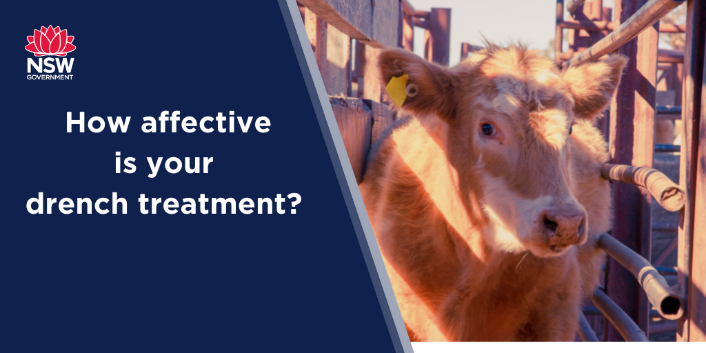Injecting some evidence into cattle worm control and trace mineral use
03 Sep 2021
By Nathan Jennings SLSO Livestock, Lismore.
To continue providing independent, evidence based, local advice to beef producers North Coast Local Land Services and NSW Department of Primary Industries have two trials currently underway looking to answer:
- What kind of worm control can I expect from injectable drenches? This comes as a logical producer question after the findings of last year’s worm resistance trial available here Drench resistant worms on the NSW North Coast
- Does Multimin (injectable trace minerals) work and where is its benefit?
These trials intend to provide local evidence of what to expect when using these products in a subtropical beef enterprise.
The injectable drench trial, being run at the Pearces Creek Research station, commenced in April 2021 with 280 cross bred weaner steers purchased from across the far north coast. The steers were selected from a much larger initial purchase and assigned groups to ensure an even allocation of properties of origin, weights, worm burdens and freedom from other internal parasites such as liver fluke. We are investigating the effectiveness of 6 of the most common injectable cattle drenches available on the market at present.
The trial is nearing Day 120 post-treatment and completion. Preliminary results have been eye-opening to all involved and a must see for beef producers. After the final weights and worm test results are conducted, we will have the full findings available by December 2021.
The Multimin trial is being conducted at the Wollongbar Research station and commenced in March 2021 with 140 cross bred weaner steers purchased from a single property of origin (to ensure all steers had the same base blood mineral levels and similar age). These were allocated to two groups, one group receiving the fully prescribed by manufacturer Multimin program through their lives and the others not. Groups were assigned based on an even spread of weights and remain running as one herd. These steers will be backgrounded on the north coast before heading to the University of New England Research Feedlot “Tullimba” in late 2021 for a feed lotting period and finally processing in 2022.
The trial has just passed Day 120 after treatment, and the treated steers have recently had their second Multimin dose. So far, both the treated and untreated groups average 361kg live weight. This trial is also looking at the immune response associated with trace minerals as well. Final results are expected mid-2022 after processing. Until then, we will keep providing updates where possible.
Watch the video of last years Duck Creek trail https://youtu.be/E59oBj0dgQM
For more information contact:
Nathan Jennings - Senior Land Services Officer Livestock - North Coast Local Land Services 0437 083 147
